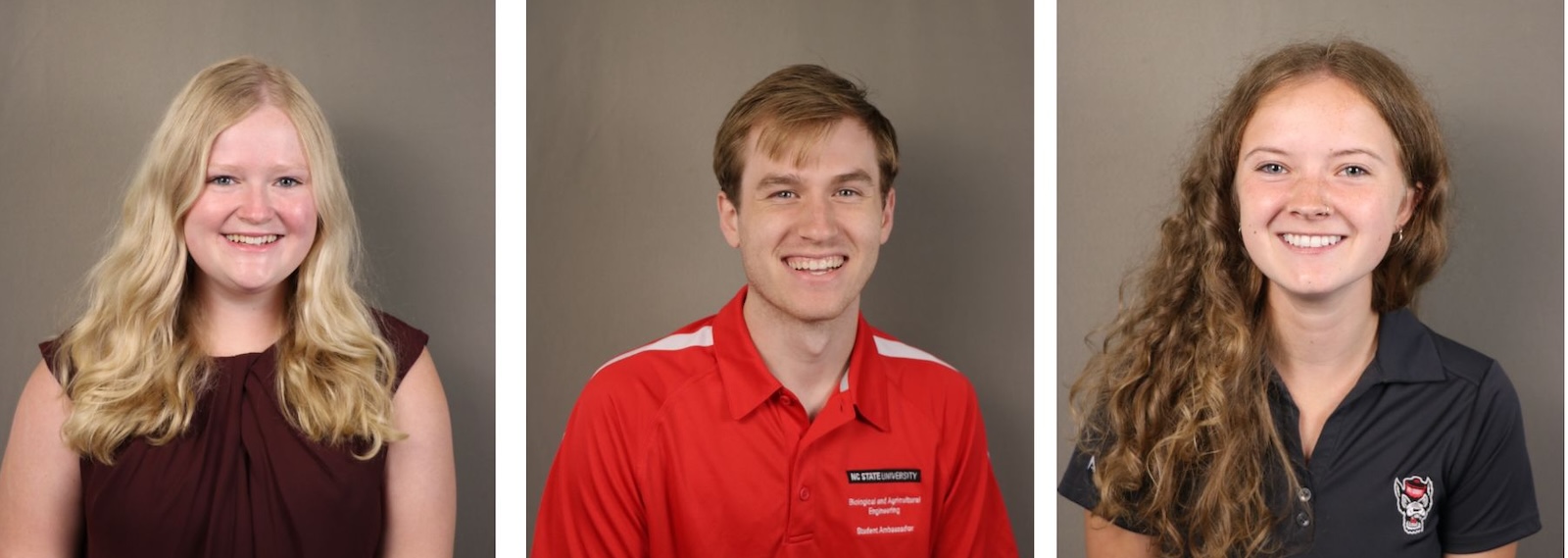2024 REEP Students

The BAE Research and Educational Enhancement Projects (REEP) are an opportunity for undergraduates to design and conduct research under the supervision of a BAE faculty mentor. These undergraduate research projects provide students a hands-on setting to dive deeper into topics introduced in the classroom. Additionally, students develop and sharpen skills for success in graduate school and industry, such as project and time management, procurement of materials, independent and critical thinking, and written and verbal communication. Assistant professor Lucie Guertault, who heads the program, will meet with students throughout the year to work on these professional development skills.
Senior Jackson Evans will work with Dr. Steven Hall and Graduate Student Chris Pascual to find ways to study and understand the effects of marine fecal carbon dioxide byproducts on plants in aquaponics systems. Currently, a major part of aquaponics systems is to off-gas CO2. This is important because large concentrations of CO2 can be dangerous for the aquatic inhabitants. This also means that carbon is being emitted directly into the atmosphere. This project provides an opportunity to take advantage of the CO2. Plants rely heavily on CO2 so this will give an abundance source for the plants to utilize. The potential for enhanced plant growth due to direct CO2 exposure will be analyzed. This will help reduce the total amount of carbon dioxide emitted into this atmosphere and greater yield from aquaponic-produced commodities. This project builds on Dr. Halls and Chris Pascual’s research on marine aquaponics and general aquaponics functions.
Senior Evelynn Wilcox will work with Dr. Celso Castro Bolinaga to characterize the concurrent erosion and habitat changes occurring at and around Rachel Carson Reserve via remote sensing data analyses. Significant changes in habitat can change the geomorphological stability of coastal systems and the infrastructure that they support. These changes happen over large temporal and spatial scales. Remote sensing data analysis provides a tool for compiling and quantifying these changes. By exploring the impact of habitat change on shoreline migration in coastal systems, this project will contribute to a better understanding of how coastal habitats can be implemented, constructed, and manipulated to sustainably protect coastal infrastructure.
Senior Perry Berlin will work with Dr. Joe Sagues to create a literature review and a preliminary techno-economic model for applying basalt mineral fines to organic farming systems in order to increase soil carbon for permanent storage. Basalt mineral fines have the potential to serve as an alternative fertilizer option for organic farmers, while also offering environmental and financial benefits to the farms. Perry has previously worked on a variety of projects within the Biocarbon Utilization and Sequestration Lab, including capturing biogenic carbon dioxide from industrial composting and quantifying the impacts of soil pH and carbon content for the application of industrial residues.
- Categories: